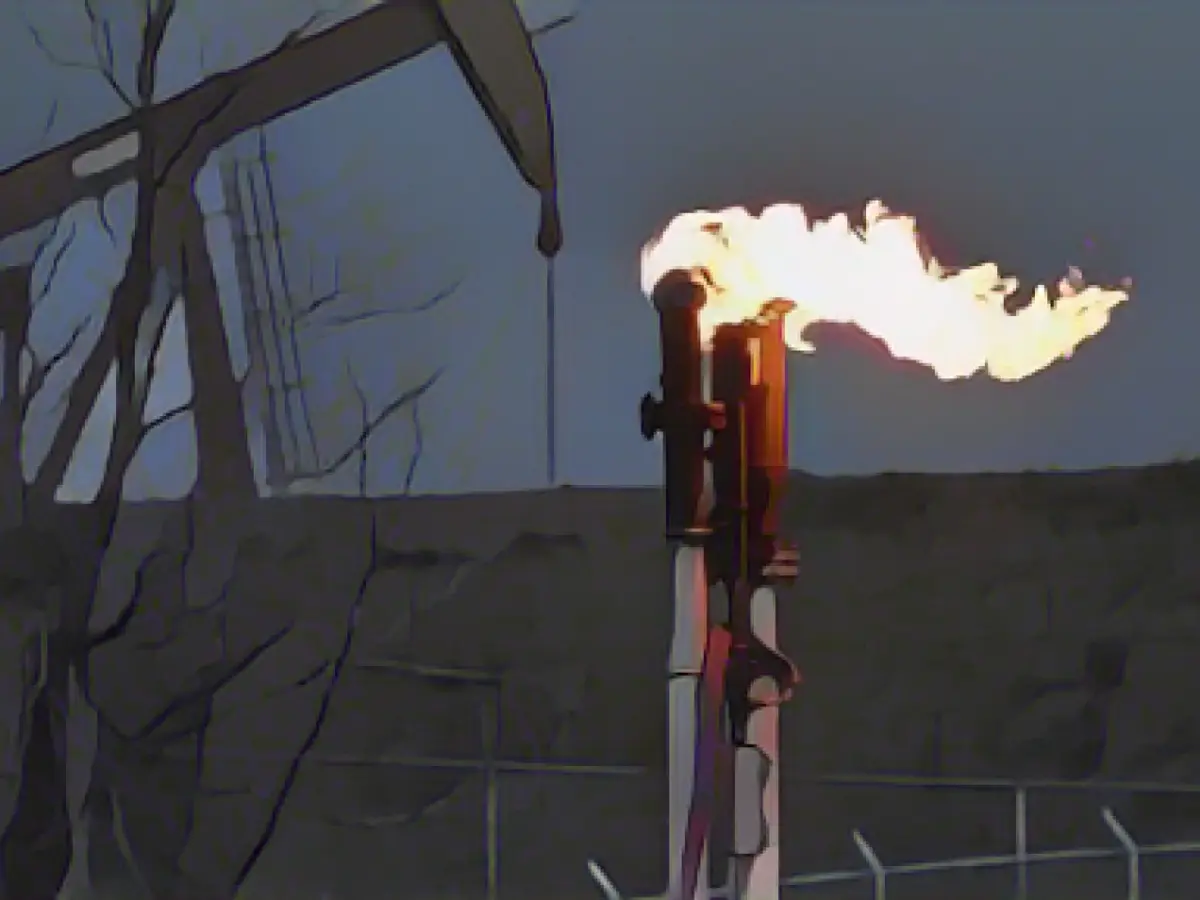In the battle against global warming, the United States is pushing forward to minimize emissions of climate-harming methane. At the UN Climate Change Conference in Dubai over the weekend, the U.S. government disclosed new regulations forcing oil and gas producers to close methane leaks. Germany and the EU are leading the way in this area.
Methane escapes during coal, oil, and natural gas extraction, cattle and sheep digestion, and landfill decompositions. Surprisingly, methane concentration is rising faster than carbon dioxide, the most popular greenhouse gas. According to the World Meteorological Organization, current methane levels are more than double pre-industrial revolution concentrations. Despite this, methane reductions are often cost-effective compared to carbon dioxide reduction efforts.
Over 150 countries have joined this green initiative, collectively responsible for over half of human-produced methane emissions. Regrettably, China, India, and Russia remain absent from this collaborative effort. The Global Methane Pledge committee will meet in Dubai at the conference's start, with new initiatives expected.
To achieve a 30% reduction between 2020 and 2030, member countries of the Global Methane Pledge have set their sights high. If no action is taken, global methane emissions could increase by up to 13% by 2030, as anticipated by the initiative. This reduction has the potential to lower global warming by at least 0.2 degrees Celsius by 2050.
However, achieving the 1.5-degree Celsius warming limit as proposed by Bill Hare, head of Climate Analytics, would require a higher 34% global reduction by 2030.
In Dubai, Germany's government also emphasized the urgency of reducing methane emissions. MP Stefan Wenzel, Federal Climate Ministry's Parliamentary State Secretary, suggested that swift worldwide methane emissions reduction would accelerate the fight against global warming. Using satellites, it is now possible to precisely locate leaks in oil drilling rigs or gas fields.
The German Federal Environment Office (UBA) states that gas is 29 times more potent than carbon dioxide, which has captured the world's attention for decades. UBA Director Dirk Messner underscored the need for binding global regulations and monitoring in the fight against methane emissions, especially in oil and gas countries.
China recently introduced a 14-page methane reduction strategy that lacks explicit figures and quantifiable targets, such as methane emissions reduction targets. This approach sets aside methane trapped in coal mines for additional use.
Europe has already reduced its methane emissions by 36% between 1990 and 2020, primarily in energy and waste sectors. Germany, in fact, cut its methane emissions by 66% between 1990 and 2022. Abandoning hard coal mining, methane extraction and use, and reduced landfill gas emissions are some of the key factors contributing to these reductions. The expansion of the circular economy, such as waste separation and biogas utilization, is vital in this regard.
However, momentum and commitment are required from all nations participating in the Global Methane Pledge to achieve significant reductions. An evaluation of the initiative's success is challenging due to a lack of data. Nonetheless, 50 countries are in the process of creating national methane reduction plans.








